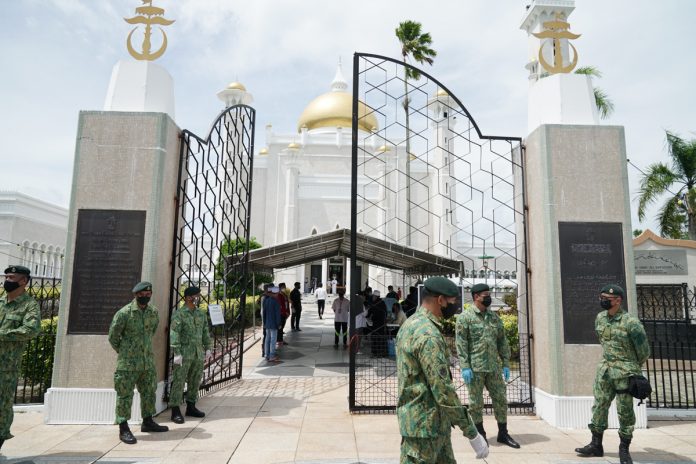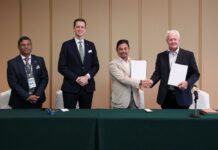
Brunei has extended its transition phase a further two weeks until December 14, but will allow unvaccinated individuals to return to work from December 1 provided they take antigen rapid tests (ART) every two days.
Brunei reached its 80% fully vaccinated target to enter endemicity on November 28, however the government announced on November 27 that they would be maintaining the transition phase – which began on November 19 – for an additional two weeks to further assess its impact.
In the extension announcement, the Minister of Home Affairs (MoHA) YB Pehin Orang Kaya Seri Dato Seri Setia Dr Hj Abu Bakar Hj Apong said all existing transition guidelines are to be adhered to, including the stay-at-home period between 10pm to 4am.
At present, the only change under the transition period is the allowing of unvaccinated or partially vaccinated persons to return to work, as a preparatory measure for when the country enters its endemic phase.
At the beginning of the transition phase, those without full vaccination were not allowed to return to work except for critical and isolated work in oil and gas, agriculture and potentially construction.
With the unvaccinated and partially vaccinated allowed to return to work in person starting December, the MoHA minister said employers will have to bear ART costs for those who are awaiting their second vaccination or have been medically exempted from taking the vaccine.
Those who remain unvaccinated for personal reasons will have to bear their own ART costs. The minister of health added that businesses will decide if those without full vaccination can access their premises.
“What the government is approving is (for those without full vaccination) to return to work,” said YB Dato Dr Hj Mohd Isham Hj Jaafar. “But for shops and other (business premises) that will be up to them.”
Existing transition guidelines only allow for fully vaccinated persons to enter, with premise capacity capped at 50%.
Brunei steps up vaccination: boosters for seniors, first doses for children 5-11
With 80.2% of the population fully vaccinated and 93.7% having received one dose, the government is now planning to offer the Pfizer vaccine to children between five to 11-years-old at the start of 2022.
Booster shots (third doses) are already being administered to frontline workers, with those above 50-years-old now encouraged to follow suit between three to six months after their second dose – dependent on the vaccine received. The wider public are expected to be given boosters after seniors.
Earlier in November, Brunei began offering vaccines to those aged 12-17, with 97% of the 38,201 students within the age group turning up for their first dose.
22 new COVID cases were recorded on November 29, with total active cases at 508, four which are being hospitalized for intensive care.
Brunei recorded an average of 63 daily cases last week, an increase from an average of 54 cases from November 15 to 21. The increase was anticipated by the government as the country eased restrictions for the first time in three months.
However hospitalisations have not increased, which the minister of health has said will be a key benchmark for measuring the pandemic’s progression moving forward, as part the government’s wider strategy to limit the severity of infections instead of eliminating the spread of COVID altogether.
The reproduction number (R0) – a metric of how many cases one newly reported case will subsequently infect – has stayed below one in the past two weeks as well, indicating the virus’ spread is under control.
The transition phase is the final preparatory stage under the National COVID-19 Recovery Framework before endemicity, where travel restrictions are expected to be eased.
Brunei recently imposed travel bans on eight southern African nations as a precautionary measure against Omicron, following the World Health Organization’s classification of it as a variant of concern.











